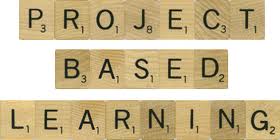[fusion_builder_container hundred_percent=”yes” overflow=”visible”][fusion_builder_row][fusion_builder_column type=”1_1″ background_position=”left top” background_color=”” border_size=”” border_color=”” border_style=”solid” spacing=”yes” background_image=”” background_repeat=”no-repeat” padding=”” margin_top=”0px” margin_bottom=”0px” class=”” id=”” animation_type=”” animation_speed=”0.3″ animation_direction=”left” hide_on_mobile=”no” center_content=”no” min_height=”none”]
When I hear people mention project based learning I think of releasing control. Teachers tend to prefer being in control. It makes me think of when a child is learning to ride a pony (I ride horses and used to teach at a camp in the summer). At the beginning, the instructor keeps pony and rider on a rope in order to keep the instructor in control. The rider does not steer. At some point though, the instructor has to give up control. The rider needs to learn to steer at some point. The first lesson with the student in control can be scary at times, but you have to start somewhere. As time goes on, the rider will makes mistakes but eventually, shows better and better control and can begin to go faster and even jump. This is how a teacher needs to be with project based learning, an instructor giving up control so that the students can grow and learn and make their own mistakes.
In order to fully implement project based learning, you need to keep seven key ideas in mind:
1. Need to Know
The students need a hook to spark their interest. There needs to be a pressing issue that will keep the students focused and interested. It gives the students a purpose for learning about this topic. Perhaps you could use a community based issue that effects all of the students in the neighborhood. This is done during the introduction to the project. The students should be engaged in discussion and eager to learn more about the topic. Videos can be a great way to introduce the issue at hand.
2. Driving Question
This is the big questions or essential question for the project. By the end of the project each student should be able to answer this question because of the research completed.
3. Voice & Choice
Students should feel like they are in charge of their learning. This component of project based learning should inspire the students to feel in control of the project. Are they choosing how to conduct the research? Or what the final project looks like(poster, power point, public service announcement, etc.)?
4. In-Depth Inquiry
Students should use the driving question to spark smaller need-to-know questions. They should use the answers to these questions to ask even more questions. The idea is that the students should want to learn more. They are in control of the learning and should want to pursue more answers. Research is a life skill they need to know and this is a great way to introduce it.
5. 21st Century Skills
Technology is an important part of school. The project should include some form of technology. The students should be able to conduct research on the Internet or even use the computer to create the final project. This component depends largely on the type of question the students are answering.
6. Revision & Reflection
The teacher should meet with students to discuss how the project is moving along. The students need feedback and coaching to keep them on the path to answering the driving question. The teacher becomes a coach in this situation. Students should have plenty of opportunity to meet with the teacher and discuss where to go from that point.
7. Public Audience
Students should have an opportunity to present their project. You can make the audience as big or small as you like. It could just be in front of the class or maybe it’s a persuasive project that could use a bigger audience such as the administration or beyond.
However you choose to implement project based learning, keep in mind that you are a coach giving the students control over their own learning. They need a chance to steer on their own. Good luck![/fusion_builder_column][/fusion_builder_row][/fusion_builder_container]





Leave a comment